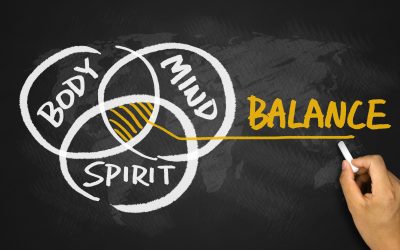Relationships Are Primary, Everything Else is Derivative

MY AHA MOMENT COULD BE YOURS TOO
The first time I realized how yoga was actually working in my life – off the mat, beyond the body – was noticing how I felt in my relationships. It was about a month into my training as a yoga therapist and my teacher shared – “you’ll know the yoga is working when your relationships change”.
I didn’t know it at the time, but the reflex of practicing perspective was naturally emerging within my thoughts and communication strategies of my relationships. Sibling relationships, my boyfriend, my boss, my colleagues, that angry woman at the park one day, the curt customer service rep on the phone – and most importantly, the way I was treating myself.
“Every interaction with another human is an opportunity to learn – something about yourself, something about them and something about relationships.”
THE RELATIONSHIP SUTRA
One of the more directly applied sutras for enriching our relationships comes from the Eight Limbs of yoga – a starter kit, of sorts, within the greater path laid out by the Yoga Sutras. The first limb teaches us about the Yamas, or relationship principles. “Yama” is Sanskrit for: control or restraint.
It’s easy to get caught up in words in translations – the word ‘control’ might have a negative or triggered feel. When we practice perspective and reflect on what we are doing in that perception, we can see clearly that holding on to one interpretation of a word is, in essence, ‘control’… is it not?
Once we loosen our grip and open our mind to an alternate understanding of ‘control or restraint’, we see that Yamas, in the context of principles (a word also related to control or restraint) are simply guardrails keeping you on the path away from suffering. The intended result of the Yamas is to cultivate peace, harmony, and self-awareness.
We start with awareness of how we ‘relate’ to ourself, others and behaviors.
Sutra 2.30:
Yamas – Relationship Principles:
1. Ahimsa – Non-violence, compassion
2. Satya – Truthfulness
3. Asteya – Non-stealing
4. Brahmacharya – Moderation
5. Aparigraha – Non-grasping, non-greed
The Yamas are most effective as a blueprint of self-love first. It creates a whole new lens in which we can now choose to view others. It’s magnificently liberating.
Can we accept and love ourself as we practice the Yamas – quieting the narrative of alleged physical flaws, career failures, parenting mishaps and all? Can we see everyone around us on the same playing field as equally human, with stressful jobs or stressful days, with relationship conflicts, disappointment and their own practice of self-judgment?
It doesn’t stop us from striving for goals or accountability; it just provides us with the understanding that everyone’s behavior comes from some form of suffering. Once we see the causes of suffering within ourself, we find greater compassion and spiritual logic in others’ behaviors too; it begins to explain the many possibilities of why people do what they do.
This enables is to relate differently, to choose an alternate communication style, to rethink a situation or not doing anything at all – refraining from the assumption that we hold a responsibility to fix something. And sometimes the clarity we find is to limit engagement in a relationship or not engage at all.
My fire-breathing boss was a man going through a divorce; my close-minded colleague had a different flair for risk in his job as he had to support four kids at home; that curt customer service rep had poor training; who knows what that angry stranger in the park was suffering from; my client was a man experiencing the cultural pressure of fitting into the exact image of his corporate peers, and so on.
Here are examples how these might be applied in day to day life:
1. Ahimsa: Practice being more kind, accepting, and forgiving of yourself and others…
2. Satya: To uphold truthfulness, authenticity; “sit with your truth” – be mindful/aware of emotional reactions that don’t serve you and seek to understand the root of your suffering, it could be a truth within yourself or a truth you now see in others…
3. Asteya: The urge to steal arises from a sense of unhappiness, incompleteness, and envy; are you hijacking someone else’s energy for your own sole benefit, and likewise, are you enabling others to take your energy by saying “yes” when it might be wiser to say “no” at times…
4. Brahmacharya: Moderation and discipline; notice the extreme behaviors that are destructive of your mind, body and spirit — excess consumption of the news, binge watching TV, overeating, stubbornness in relationships; translation of brahmacharya is “walking in God-consciousness”…
5. Aparigraha: In what ways do you share abundance with others in need by trusting – believing – you will experience it yourself; “all the things of the world are yours to use, but not to own”…
TAKE 5
We can draw wisdom from many other yoga sutras to help heal and enrich our relationships, so just consider this short list of 5 relationship principles (Yamas) as a start or source of information to guide you within. The subsequent sister limb to the Yamas is the Niyamas, which are lifestyle principles, and may be helpful to review in my other post, here.
And remember, it’s a practice. We don’t walk into a gym, finish one workout and walk out with a body that has been physically transformed into our goal. Yoga is about moving from suffering to contentment, and it happens as you build the reflex in your mind, over the course of many little situations.
Credit props to one of my early teachers who displayed the title of this post in her email signature line for many years. Thanks for the inspiration G!
Putting It All Into Practice
TAKE FIVE TO FEEL WHAT YOU FEEL
Find a comfortable seat, either on the ground or with your feet planted on the ground while sitting upright in a comfortable chair. Take 5 deliciously slow and deep inhales into the belly as you count to 3, and exhale counting to three also, while relaxing your shoulders, for a brief 5 minute reflection practice:
Review the list of Yamas and ask yourself how each of them might be applied for a more balanced and joyful experience with your self, in your own skin. Consider the ways in which your identification with yourself causes suffering, and reflect on how these principles can bring ease or transform them.
It might be the first time you’ve ever considered your relationship with yourself… Congratulations — just feel what you feel, don’t overthink it.
Careful not to expect perfect clarity on the first review. This is a short, focussed practice worth repeating, and experiencing over time.
End with one BIG deep inhale and exhale out an open mouth with a big sigh! Rinse and repeat.
_
Next practice, identify one, two or three key relationships in your life and consider the ways in which these relationships cause suffering – remain as objective as you can.
Review the list of Yamas and decide how each of them might be applied for a more balanced and joyful experience with those individuals. Reflect on how these principles can bring ease or transform them.
Careful not to expect perfect clarity on the first review. This is a short, focussed practice worth repeating, and experiencing over time.
End with one BIG deep inhale and exhale out an open mouth with a big sigh! Rinse and repeat.
Suffering is Optional
To Klesha is To Human The Five kleshas (Yoga Sutra 2.3) are mental afflictions or obstacles that cloud the lens through which we are currently viewing a situation, person, or thing, and keep us stuck in cycles of suffering. We are all born with these kleshas. This...
Rapidfire Research on Meditation
Alright, so research is super boring to many of us in jobs without goggles and white lab coats, but….. Spoiler Alert! Meditation offers a multitude of health benefits, encompassing both mental and physical well-being – and including both structural and functional changes to certain brain regions.
Asmita: The Ego That Thinks It’s the Star of the Show
The 2nd Klesha is Asmita: Yoga, Ego, and the Art of not Being a Self-Centered Diva or Jerk. We’ll cover each of the five kleshas in this series about why Suffering is Optional.
Avidya: Because Who Doesn’t Love a Good Delusion?
The 1st Klesha is Avidya: It’s the queen of the kleshas, ground zero of all the other kleshas. We’ll cover each of the five kleshas in this series about why Suffering is Optional.
Practicing Perspective for Chronic Stress: Cortisol and Dumpster Fires
Cortisol is a hormone produced by the adrenal glands in response to stress. Certain thoughts or perspectives have the power to turn up the dial of stress throughout our whole bodily system – from something that only exists in the mind.
Yoga as Lifestyle Medicine
Sustained or chronic cortisol levels put us on a path to a long list of health risks and disease. The Niyamas help us understand how we are empowered to manage stress in the mind – and, thus, manage our cortisol levels naturally.
Cognitive Behavioral Therapy and the Yoga Sutras
As we look closely at one of the more common methods (practices) of psychology being Cognitive Behavioral Therapy (CBT), we can find a significant amount of overlap with Yoga.






